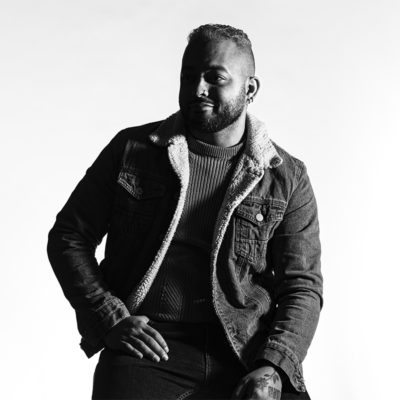Musician Austin James Talks Mental Health + Diabetes Burnout
Editor’s note: This interview has been edited for time and clarity.
Anyone living with type 1 diabetes knows that day-to-day management requirements can take a toll. It’s understandable if you feel overwhelmed, face burnout or just feel tired of the many decisions that come with managing blood sugar levels. Having a support system can make all the difference for your mental health! Still, mental health care can be an overlooked but valuable piece of the diabetes equation.
Connecticut-based musician Austin James knows what it feels like to feel rundown by the stressors of living with type 1 diabetes. James, 33, also knows what a difference a mental health provider can make in your life.
Austin talked to Beyond Type 1 about his experience with diabetes burnout, talk therapy and meditation and how integrating mental health providers into his diabetes management team changes how he approaches his type 1 diabetes.

BT1: Can you talk about how your diagnosis affected you?
Austin James: I was a senior in high school when I was diagnosed. I was busy trying to be a kid and get ready for the next chapter of my life, and it was a massive change. I remember being very overwhelmed.
It was a lifestyle change. Overnight, I had to change the way I ate, the way I exercised. I was a dual athlete in high school, and it was such a challenge getting back into peak physical form. I had lost so much weight before I was diagnosed. So it took a toll on me mentally because I’m looking at myself withering away. I just felt so embarrassed about how I looked.
It certainly gave me just a whole different level of discipline. I was hyper-focused on taking care of myself.
Did you ever experience diabetes burnout?
I definitely suffered burnout when I was in college. I was doing it by myself, and I had to work to try my best to afford insulin.
Due to federal policy at the time, I couldn’t be on my parents’ insurance, so it was really difficult. I was pulling side jobs, working, taking a full course load and then doing odd jobs to pay for my insulin.
I was definitely rationing insulin. There were times when I wasn’t eating like I was supposed to—I was eating very little. It was a massive stressor. That was a really difficult time physically and mentally.
At what point did mental health care become part of your diabetes management plan?
In the last three or so years, I’ve had a great endocrinologist who has ensured that I’m continuing to get mental health care. I have my therapist and psychiatrist and a full team now working together on the mental and physical aspects of my diabetes.
How has your diabetes management benefitted from having an ongoing relationship with a mental health provider?
I’ve noticed the periods of diabetes burnout that I’ve had haven’t been prolonged. It’s very brief. I get discouraged, obviously—it’s hard to be diabetic. But, making sure that I have my talk therapy sessions and that hour is my chance to be able to vent and kind of figure out good coping strategies for dealing with burnout or dealing with stressors around diabetes.
What tools have you gained from working with a mental health team on your diabetes management?
There is a routine that I’ve implemented to stay disciplined so that the burnouts are few and far between. I make sure I’m taking care of my nutrition and exercise, staying active, having a positive mindset and other tools from my therapy sessions and having those all be married together.
Physical and mental health are so integrated, so I make sure that I’m staying as positive as possible and as active as possible to limit stress and burnout. Meditation is a part of it, stretching, doing yoga to make sure I’m promoting tranquility inside myself by staying active and learning to listen to my body.
How has that awareness changed how you manage your diabetes?
It certainly makes me more aware and sensitive to highs and lows and what I need to do that day. Sometimes it’s a crapshoot—I can do everything right and still have a high or a low. But it’s about being able to properly navigate my day-to-day needs the majority of the time so that I have the results that I desire.
What tools do you wish your younger self had?
If I had known the importance of mental health earlier, I would have been in therapy years ago. It’s hard to play the “what if” game, but I think I’d be in a much different place now. I think I would have been able to avert a lot of the big issues I have had with my diabetes and deal with the stressors that come with it. I think I would have had better and healthier coping mechanisms earlier.
Men access mental health at lower rates, and stigma plays a role in that. What advice would you give to someone who isn’t sure how they’d benefit from working with a mental health support team?
It’s important to have a good support system and a team around you. We can’t do it alone.
As strong as we may be, we’re always gonna run into a situation where we can’t do it by ourselves. Don’t be afraid to get help.
And when you get the help, it gets better. It really does.
Mental health tends to be a generalized term. There are many kinds of mental health challenges and concerns. If you think you could benefit from professional help to address your mental health needs, please seek out support.
Here are some more resources for further mental health support that may help:
- Just Diagnosed with Diabetes? Why and How to Find Mental Health Support
- The T1D Guide for Mental Health Providers
- American Diabetes Association: Mental Health Provider Directory
- How Diabetes Impacts Your Mental Health
If you or a loved one is in immediate crisis, please do not hesitate to dial the National Suicide Prevention Lifeline: 1-800-273-8255. The lifeline was designed to provide free and confidential support for people in distress. Crisis and prevention resources are immediately available.
Editor’s note: This content was made possible in part with support from Lilly, an active partner of Beyond Type 1 at the time of publication. Beyond Type 1 maintains full editorial control of all content published on our platforms.





